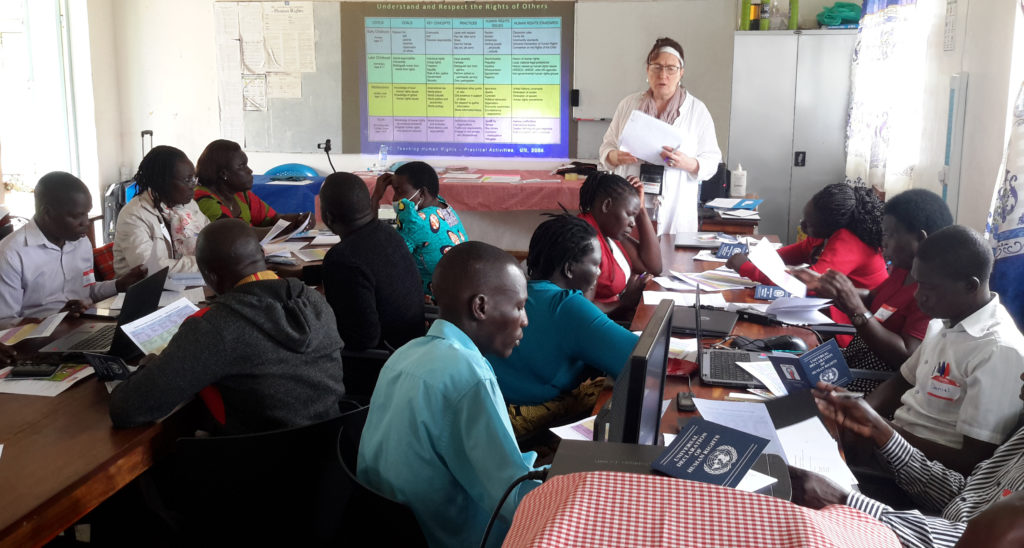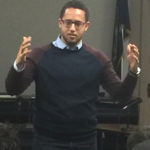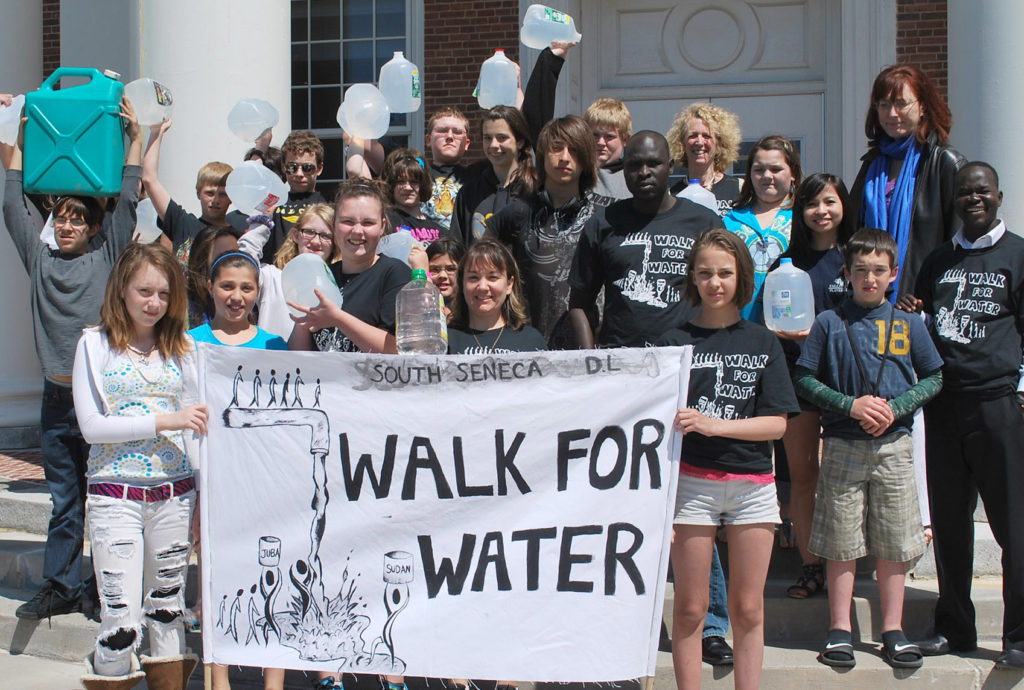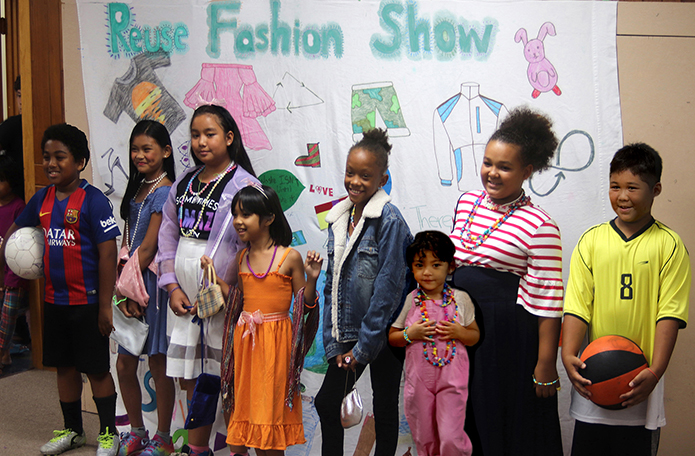Program Design
Young people see and hear about conflicts, health crises, and disasters both within and outside of their immediate environment, but all too often the human suffering associated with these is distant, impersonal, and seems to apply only to others. Their information and perceptions are often riddled with generalizations, stereotypes, and biases, and many have limited contacts with peers from diverse backgrounds.
Words Into Deeds is committed to helping youth develop their full potential as informed, engaged, effective citizens in their schools, communities, and globally, and instilling in them skills necessary to become agents of positive change based on understanding the principles of Human Rights. Our programs require students to design and implement interdisciplinary outreach projects that draw upon their creativity and energy and make a positive difference in the lives of others. By developing these habits and rewarding their efforts, we broaden each student’s perspectives, help them develop empathy for others, and prepare them for active, informed engagement with society as adults.
EMPOWERING YOUTH VOICES
Programs usually begin with discussions followed by 2-day workshops for teachers and administrators. These prepare them to introduce Words Into Deeds projects into their classrooms and school-wide curricula. Workshops are tailored for the elementary, secondary, and college-level educational organizations, and include both traditional academic and vocational-oriented venues.

Introducing teachers to the Universal Declaration of Independence, emphasizing how these principles can be incorporated in classroom activities for all grade levels.
WORDS introduces principles of Human Rights and Democracy through study of documents such as the Universal Declaration of Human Rights and Constitutional guarantees, in formats suitable for all grade levels and countries. Through mentored discussions and age-appropriate resources, participants relate these to current or recent historical events they have heard or read about, and come to appreciate both the importance and fragility of these guarantees in contemporary society.
These are followed with interactive exercises that introduce the Sustainable Development Goals and provide a framework to help them identify and focus on a specific issue or problem.

INTO engages students in researching what is known about the problem they’ve chosen, using age-appropriate resources and student-engaging discussions. This typically begins with examination of data provided by discussion leaders or from web-based or library sources if available. The process is enriched by direct contacts with peers, experts, artists, activists, and service providers who help teachers and students explore multiple points of views regarding the causes and steps being taken to mitigate the problems. On-line meetings with peers at other schools and countries expand students’ awareness and understanding of diversity and global inequalities, thereby “putting a human face” on issues that often seem very abstract, distant, and controversial. During these discussions, students learn to identify biases in themselves and often in their sources of information, and to question the authenticity and validity of information they have acquired.

Ithaca Mayor Svante Myrick meeting with Youth Voices on Substance Abuse participants to raise their awareness of how this affects communities and, from his personal experiences, families.
DEEDS means that students follow their ideas with actions. Simply put: identify a problem and do something about it that helps others. This requires building partnerships with peers and community members, both locally and globally, that enable them to design and implement targeted, actionable service projects that meet the needs of and respect the sensitivities of community members. Often, students studying different subjects or from different grades, and even attending other schools in their district or globally, will establish collaborative teams to share and better achieve their outreach objectives.

School-wide annual Walk for Water raised over $10,000 to promote gender equity by freeing girls from the necessity of walking long distances to fetch water for their families. Included are two former Sudanese refugees who helped students understand what living with water insecurity means.

Participants in a Youth Voices of Domestic Abuse project they designed meet with international peers at a youth leadership conference held annually at the UN.
Celebrating accomplishments is a proven important component of developing sustained citizenship skills among youth and helping them gain confidence in their abilities to communicate. These can be scheduled at class or school events, awards ceremonies, or in conjunction with community activities.

Local 4-H youth gain understanding about Sustainability and Responsible Consumption. Items they selected at the Ithaca ReUse Center were modeled at a community fashion show, and for each the source of materials and importance of re-using instead of discarding was described.
Workshops are the launching platforms for introducing ideas and strategies, but the hard work is what follows. Words Into Deeds team members continue working with teachers and their students during the design and implementation phases, helping them identify and secure necessary human and tangible resources. The goal is to expand the opportunities for and expectations of students and have these become sustainable features of their school’s curriculum.
